Polyurethane varnish: types, advantages and application
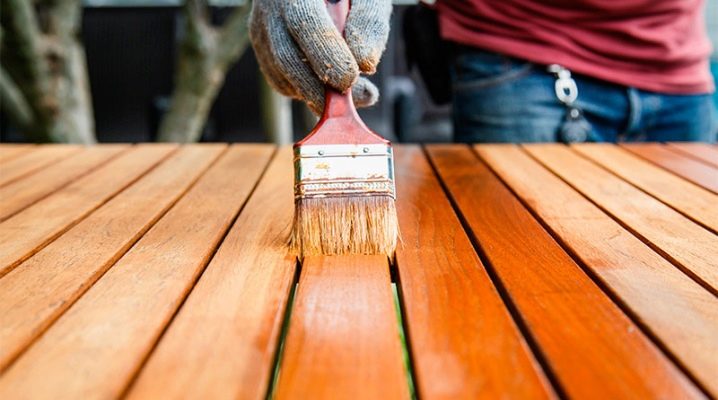
Polyurethane varnish is widely used for the treatment of wooden structures. Such a paint and varnish material emphasizes the structure of the wood and makes the surface visually attractive. After the solution dries, a strong film forms on the surface, which protects the tree from the effects of external negative factors. The types, advantages and features of the application of polyurethane material will be considered in more detail in this article.
Purpose and features
Polyurethane varnish is one of the most demanded materials in construction and renovation. The created coating has excellent performance characteristics. The solution based on polyurethane surpasses other types of varnishes in many respects.
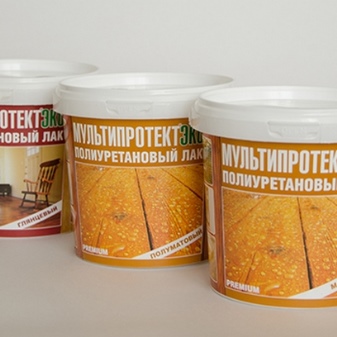
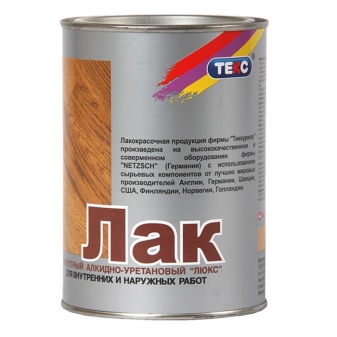
The polyurethane mixture has the following advantages:
- Resistant to temperature fluctuations. The coating can be used in the temperature range from -50 to +110 degrees Celsius.
- Long service life. A quality coating can last over ten years.
- There is a high level of adhesion.
- The moisture resistance of the coating plays an important role.
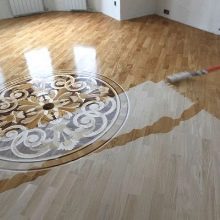
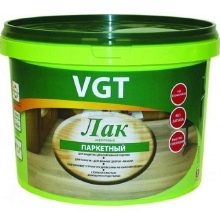
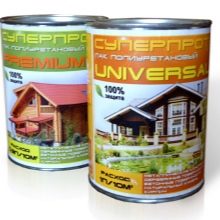
- The material is resistant to direct sunlight.
- The varnish can withstand various mechanical loads.
- The wear resistance of the material is significantly higher than that of an alkyd coating.
- Good elasticity, so that the varnish layer does not crack after drying.
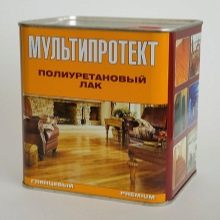
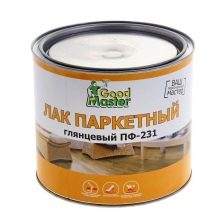
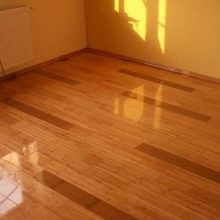
However, like all paint finishes, polyurethane varnish has its drawbacks. The main disadvantages include:
- The composition of two-component solutions, as a rule, contains organic solvents, which may not have the best effect on human health.
- Not all types of polyurethane mixtures are of high quality. The composition of the material depends on the manufacturer. Poor quality coatings can turn yellow over time.
- The cost of high quality polyurethane varnish is quite high.
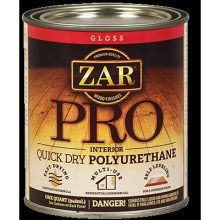
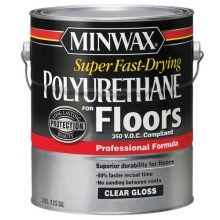
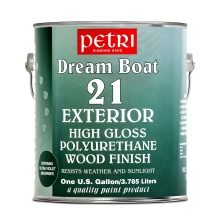
Applications
Polyurethane varnish is mainly used on wood surfaces. However, the solution protects well not only wood, but also many other materials.
There are the following areas of varnish application.
- Creates a durable protective coating on walls, floors and ceilings and wood furniture. A durable film of polyurethane varnish protects surfaces from mechanical stress, and also prevents the formation of damage from chemicals.
- The solution impregnates well such surfaces as concrete, brick, roofing material in the form of slate tiles.
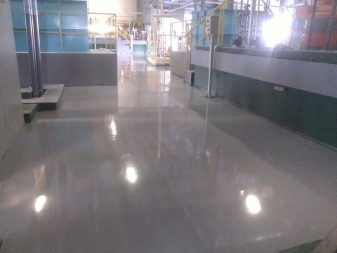
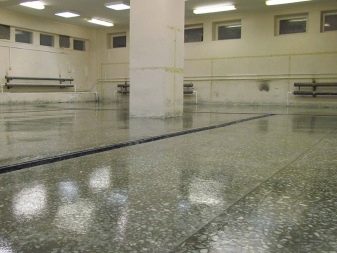
- Polyurethane varnish is one of the most popular materials for parquet processing.
- Varnish is used to create a "wet stone" effect.
- It is used for both interior and exterior decoration.
- Ideal for preventing rust on metal and concrete.
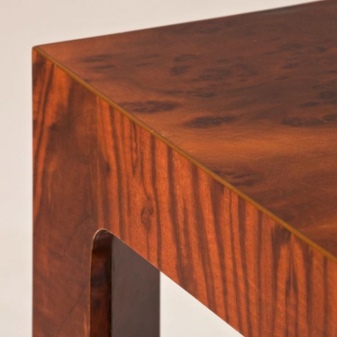
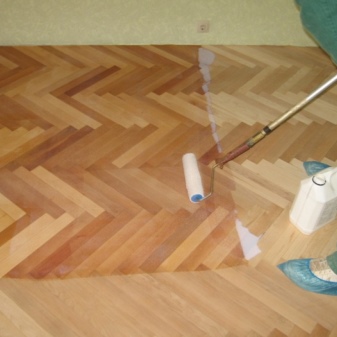
Species: composition and properties
Polyurethane-based varnishes can have a different composition, which will affect the properties of the future coating.
By chemical composition, the following types of mixtures are distinguished:
- one-component;
- two-component.
One-component solutions are water-based and available ready-to-use.
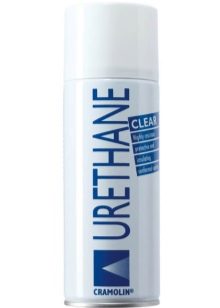
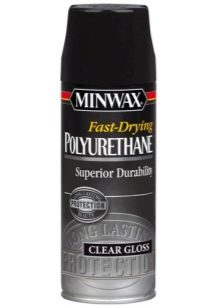
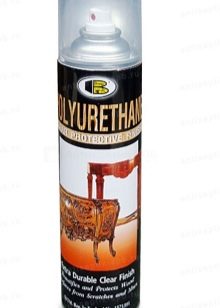
The most convenient for use are varnishes in the form of an aerosol.The advantage of using aerosol cans is that the coating dries quickly.
The advantages of such a composition include:
- Health safety. One-component mixture does not contain toxic substances and organic solvents.
- When dry, the varnish does not emit harmful substances into the air.
- The material is fireproof.
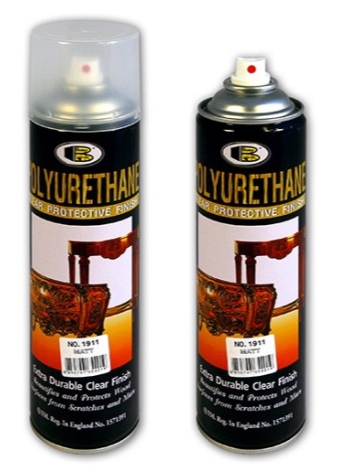
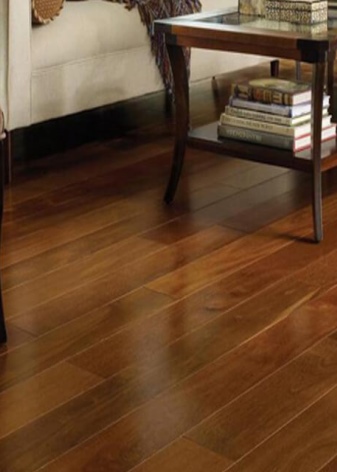
However, one-component formulations are inferior in quality to two-component mixtures. A two-component mortar is made immediately before the start of finishing work. This composition includes a base and a hardener.
To prepare a ready-to-use mixture, both components must be mixed with each other. The disadvantage of this composition is the rather small permissible shelf life of the prepared solution. The mixture can be used within five hours after its manufacture.
A two-component varnish has higher technical characteristics than a one-component composition. If the surface will be exposed to high mechanical stress, then it is necessary to use only two-component solutions for its processing.
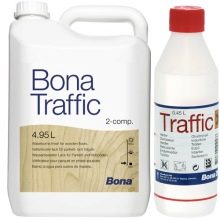
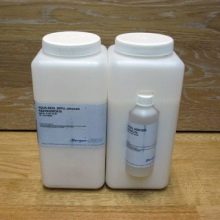
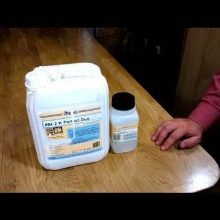
Polyurethane-based mixtures are classified not only by chemical composition, but also by application.
Depending on the scope of use, the following types of varnishes are distinguished.
- Yacht. This type of paintwork was originally intended to cover wooden yachts. However, now the material is actively used for interior and exterior decoration of various wooden structures. The advantage of such a varnish, first of all, is its high moisture resistance.
- For plastic. Latex-free formulations are available for processing plastic products.
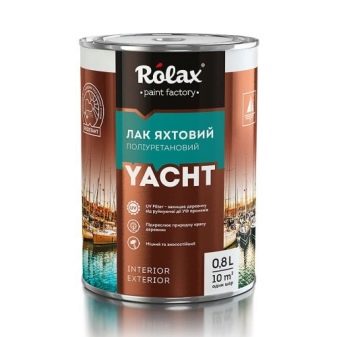
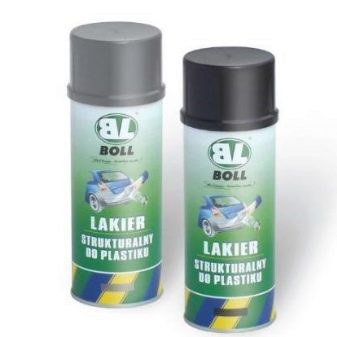
- Parquet.
- Furniture.
- Universal (for various types of surfaces).
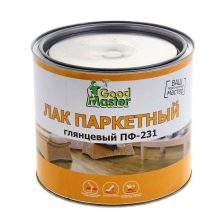
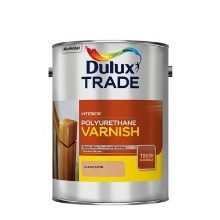
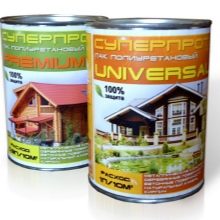
Colors
Polyurethane-based varnish is most often produced in a colorless transparent form, which allows you to emphasize the natural structure of wood when applying the composition to the surface. According to the degree of gloss, glossy and matte coatings are distinguished. Such differences in shade do not have any effect on the technical characteristics of the material.

The difference will be in some operational features.
- Glossy finishes are the most prone to scratches. In addition, defects on a shiny surface are more noticeable than on a matte finish.
- Matt varnish better emphasizes the wood texture.
- The matte finish is the most UV resistant. For outdoor work, it is better to use just this kind of paint and varnish material.
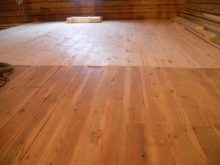
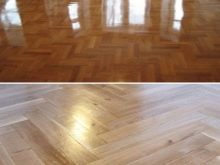
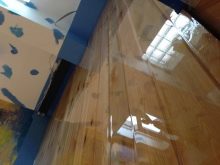
Some manufacturers of finishing materials produce varnishes based on polyurethane, which contain dyes. Pigmented mixtures allow you to give the surface the desired shade.
Manufacturers
The quality of polyurethane-based varnish directly depends on the composition of the mixture and its manufacturer. It is better to purchase material produced by a company that has established itself well as a manufacturer of paints and varnishes.
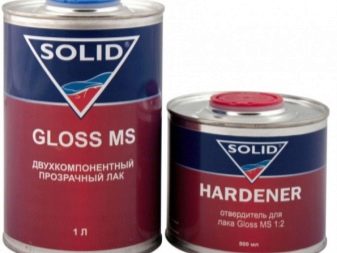
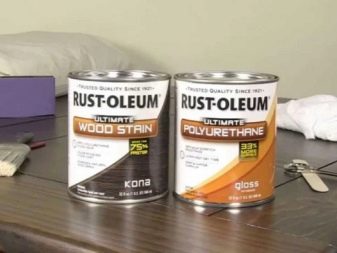
Petri
Petri has a history of over fifty years. The company occupies a leading position in America in the production of polyurethane varnishes. All products manufactured under the Petri brand are of high quality and excellent durability.
The line of polyurethane-based varnishes has ten different material modifications, differing in composition and some properties. The use of any kind of Petri mixture guarantees a high-strength coating with a diamond-hard effect. Such material is perfect for treating floors in rooms with high traffic, where the load on the surface will be high.
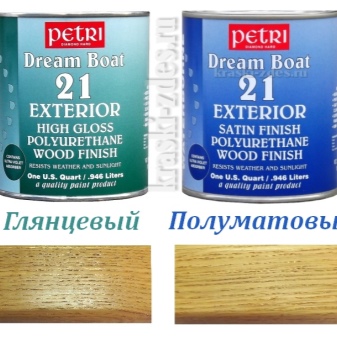
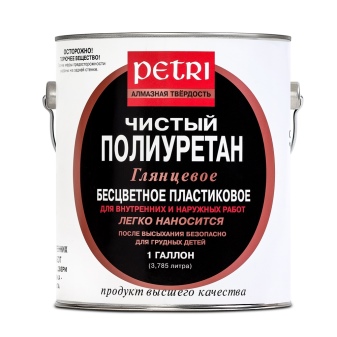
Polistuc
Polistuc is one of the leaders in the production of paints and varnishes in Italy. Italian polyurethane varnishes are used in both domestic and industrial construction.Basically, mixtures are produced for the processing of metal and wooden structures.
Polistuc polyurethane varnishes are highly resistant to abrasion and scratches on the surface. With the help of this material, a high-quality and durable coating is created that will not turn yellow over time.
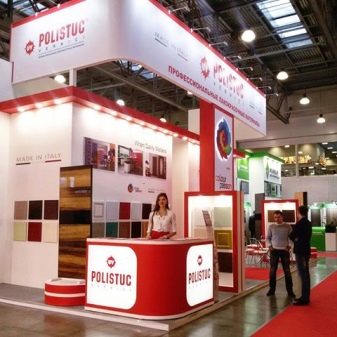
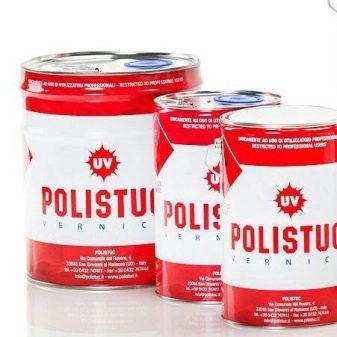
"Iraqol"
Firm "Irakol" is one of the largest manufacturers of professional paints and varnishes in Russia. The products of the Russian company "Irakol" are not inferior in quality to the products of world manufacturers of paints and varnishes.
In the production of polyurethane-based varnishes, only high-tech modern equipment and the best raw materials are used. The price for the products of the "Irakol" company is significantly lower than foreign analogues.
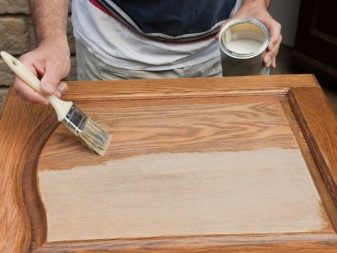
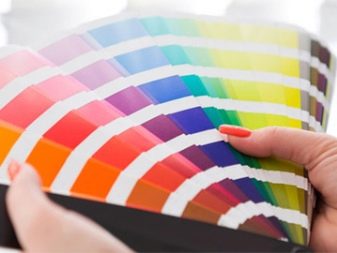
Application and methods of application
The technology for applying polyurethane varnish to the surface will depend on the composition of the mixture itself, as well as the scope of its application. However, it must be remembered that in any case, before finishing work, it is necessary to carry out the procedure for preparing and cleaning the surface.
Wood coating
Before carrying out repair work, the wooden base must be well cleaned of dirt and, if necessary, sanded. If there are greasy stains on the wood, then they must be removed. When wet cleaning does not help to get rid of such dirt, then you can degrease the surface with a solvent.
If a wooden structure will be used outdoors or in conditions of high humidity, then it must be treated with a special solution to improve its antiseptic properties. To emphasize the natural wood structure of the surface or to give the material the desired shade, the product is stained before varnishing.
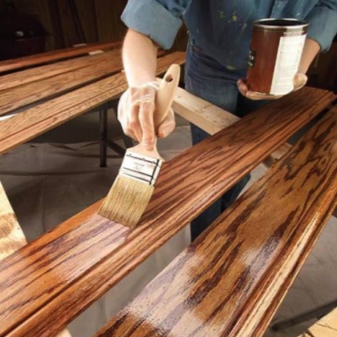
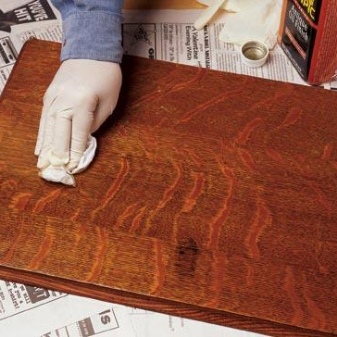
If it is necessary to cover the floor with paint and varnish material, then it becomes necessary to protect the lower part of the walls from dirt. For this, the walls from below are pasted over with masking tape around the entire perimeter of the room.
After the wooden surface is ready for processing, you can start making the solution for application. One-component formulations are sold ready-to-use.
However, in certain cases, a solvent must be added to one-component mixtures:
- If the solution is to be spread with a brush, it is not necessary to dilute it with a synthetic solvent.
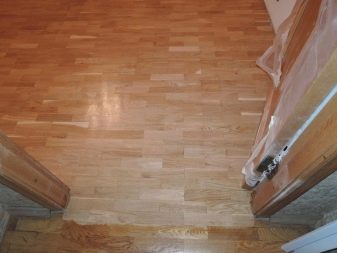
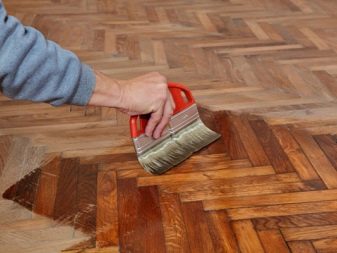
- When working with a roller, you need to add from five to ten percent of the solvent.
- When using a spray gun to apply varnish, the consistency of the solution should be fairly fluid. Therefore, up to twenty percent of the solvent must be added to the composition.
Two-component mixtures are made strictly in the proportions specified by the manufacturer. The instructions for preparing the mixture are always indicated on the packaging of the material. It is better to apply two-component solutions with a fur roller.
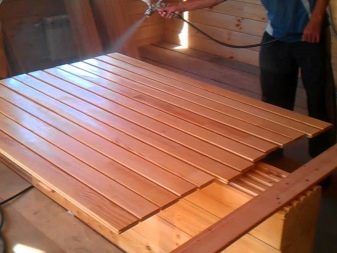
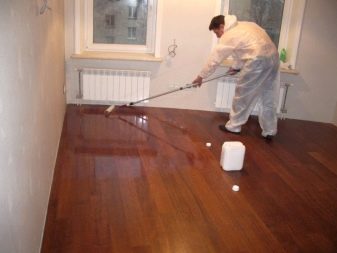
Surface treatment should be carried out along the grain of the wood. It is recommended to apply the polyurethane coating in at least two coats. In certain cases, four coats of the mixture may be required. The varnish is spread over the surface with slow and smooth movements. If you work carelessly, bubbles may form on the coating.
The last layer of the mixture is applied only to a dry and clean surface. The time interval before subsequent surface treatment can be from two to six hours. All accumulated dust must be removed from the surface with a vacuum cleaner or a damp cloth. It is also recommended to go over the first layer with sandpaper. The drying time of the finish coat depends on the type of polyurethane varnish used and averages eight hours.
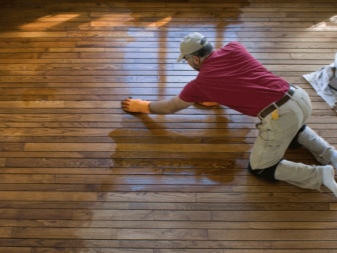
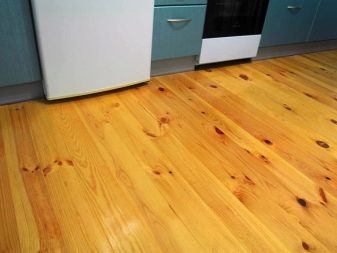
Concrete floors
To improve the performance of self-leveling concrete floors, polyurethane-based varnishes are often used.In order for the coating to be of high quality, the floor must be as flat and clean as possible. If the composition of the self-leveling floor did not include polymeric substances, then such a surface must be primed.
It is recommended to use only two-component mixtures for the treatment of concrete floors.
To create an original decorative coating, various patterns can be formed on the surface with varnish using special stencils. Otherwise, the technology for applying polyurethane mortar to concrete does not differ from similar works on wooden floors.
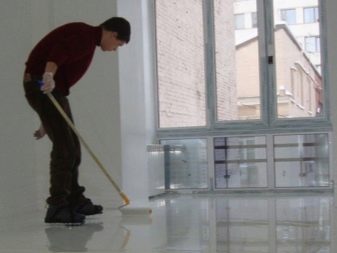
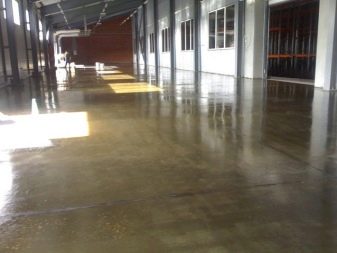
Helpful hints
Repair work inside the premises should be carried out at a certain temperature regime. The air temperature in the room should not exceed twenty-five degrees.
There are a few extra precautions to keep in mind when using a two-component solution.
- If finishing work is carried out indoors, then the room must be well ventilated.
- It is necessary to work with such material in a respirator.
- After carrying out all the repair work, it is advisable not to operate the premises for two days. Within the specified time, all harmful substances must leave the coating and evaporate.
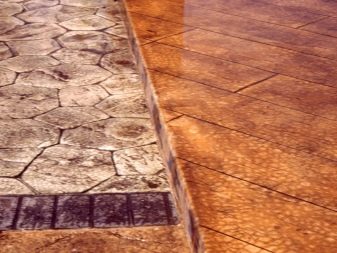
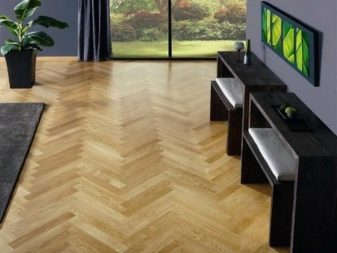
If it is necessary to cover the floor with varnish, then the application of the mixture must be started from the window towards the door.
When a roller is used as a tool for working with paints and varnishes, the mixture must be distributed on the surface in a crosswise motion. This method will allow you to create an even coating without the formation of streaks.
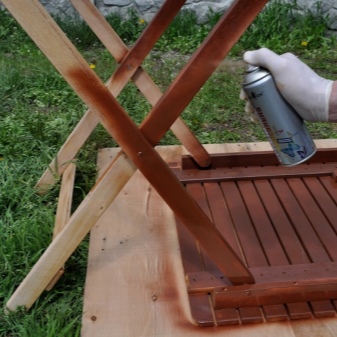
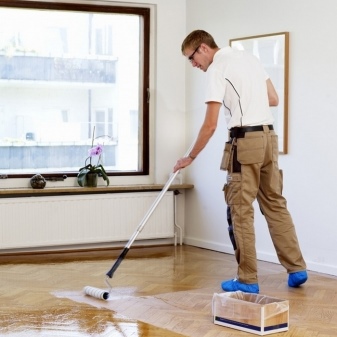
Small objects or small surfaces are best treated with polyurethane varnish available in aerosol cans.
The consumption of aerosol mixtures is usually higher than that of conventional liquid formulations, therefore it is recommended to purchase material with a margin.
See the following video for the process of applying polyurethane varnish.













The comment was sent successfully.